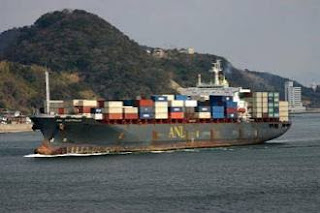September 1, 2009
Opinion divided on TV, online fatwa services
 JEDDAH: The Internet, SMS text messaging and Q&A programs on satellite television have all made it easy for members of the public to receive answers and clarifications on Islam-related matters.
JEDDAH: The Internet, SMS text messaging and Q&A programs on satellite television have all made it easy for members of the public to receive answers and clarifications on Islam-related matters.The issue, however, is not so straightforward. Some people believe that modern means of communication give sheikhs limited time to think and deliver answers properly. On the other hand, those in support of such means of delivering fatwas say that there is no cause for concern since the majority of queries are repetitive and discussed by scholars before, allowing little room for error.
Abdullah Manna, a Saudi writer, has coined a phrase to describe fatwas delivered through such modern means — “Takeaway Fatwas”. Manna said that Q&A programs on satellite channels have lost their educational and religious purpose and become business instead. He added that these modern means of communication provide sheikhs with a platform to compete with each other and increase their popularity.
The growth and sustainability of such fatwa programs are largely due to the technological revolution as well as better and faster modes of communication fitted into profitable business models. These interactive programs are not only supported through advertising revenue, but also accrue revenue from viewers who telephone in on premium telephone lines.
The producers of such programs repeatedly claim that they air these programs and provide fatwa services because of public demand. Manna, however, countered: “Do not speak for the audience. Most people seek to live moderately and concentrate on praying, fasting, paying Zakah and performing Haj. That is it. This is the extent of their response to their religious duties.”
Manna believes that since Saudi society is a religious one, such scholars take liberty knowing full well they would not be criticized for speaking about religion. It is on account of this knowledge that they speak without any limits.
Manna said “Takeaway Fatwas” go against the ethos of what fatwas should be.
“Issuing a fatwa needs patience and close scrutiny. It also compels sheikhs to explore different opinions and the views of other fiqh schools before providing answers,” he said.
It seems that most questions on fatwa programs and sites are about khulwa (illegal seclusion) and issues relating to beauty such as makeup, perfume and plastic surgery. The questions are also posed mostly by women.
Other questions that frequently come up include participating in entertainment programs that offer prizes, questions about relations between humans and jinns, living in Western countries and dealing with non-Islamic banks and insurance firms.
Questions during Ramadan mainly revolve around fasting. This year has, however, been unique with people asking whether it is necessary to perform prayers in mosques and whether they can avoid going for Umrah due to the swine flu epidemic. Some queries are more specific with people asking whether Makkah and Madinah are protected from the flu due to their holiness.
Q&A programs are among the most popular television programs in the Kingdom with the MBC Efta’a program topping the list. The program, presented by Sheikh Abdul Aziz ibn Nouh, hosts Islamic scholars who answer queries from members of the public.
4shabab is one channel that has gone against this trend and does not broadcast fatwa programs. “We do not want to copy other channels,” said Ali Al-Omari, chairman of 4shabab. “Also our target audience is the youth and we discuss issues that concern them in a program that is aired every Sunday. It is popular even though it does not include fatwas,” he added.
Sheikh Abdul Mohsin Al-Obaikan said he sees no harm in such programs. “As long as the fatwa is from the ‘people of fatwa’ (scholars) and is clear, then there is no problem,” he said, adding that a fatwa is generally about what is “permissible” or “impermissible” and this can be communicated through an SMS or other means of communication.
One popular online fatwa site is IslamOnline.net (www.islamonline.net), which gives answers in both English and Arabic free of charge. Ali Al-Halwani, managing editor of the site’s English Shariah Department, said the site has been receiving an average of 350 questions a day since its launch 10 years ago. He added that the site only manages to answer 20 queries a day and that 70 to 80 percent of queries are from people residing in the West. The site has answered 30,000 queries in the last 10 years. Al-Halwani said questions are categorized into two sections — general questions, which can be answered instantly, and specialist questions which demand the help of highly qualified scholars. He added that the site also contacts questioners if queries are not detailed enough.
Mohammad Al-Banna, who works for the IslamOnline.net’s Arabic section, said that the majority of the site’s visitors are women and youth. Egypt tops the list followed by North African countries, Europe, Saudi Arabia, the UAE and Qatar.
Another Arabic fatwa website that has recently added English and Urdu services is Islamic Hotline (www.elhatef.com). Islamic Hotline was initially launched to cater to a largely Egyptian audience but then expanded its service in July 2009 to include special telephone lines for Egypt, Saudi Arabia, the UK and other countries. Islamic Hotline has answered over 2 million questions since its launch in 2000. It also charges 99 cents (around SR3.71) for each fatwa sent by e-mail. No one was available from the website to answer Arab News’ query on why they charge a minimum fee for fatwas, and why an Egypt-based website is offering an Urdu service.
August 31, 2009
US 'needs fresh Afghan strategy'
 A top US general in Afghanistan has called for a revised military strategy, suggesting the current one is failing.
A top US general in Afghanistan has called for a revised military strategy, suggesting the current one is failing................
BBC NEWS: In a strategic assessment, Gen Stanley McChrystal said that, while the Afghan situation was serious, success was still achievable.
The report has not yet been published, but sources say Gen McChrystal sees protecting the Afghan people against the Taliban as the top priority.
The report does not carry a direct call for increasing troop numbers.
"The situation in Afghanistan is serious, but success is achievable and demands a revised implementation strategy, commitment and resolve, and increased unity of effort," Gen McChrystal said in the assessment.
Copies of the document have been sent to Nato Secretary General Anders Fogh Rasmussen and US Defence Secretary Robert Gates.
The report came as further results from last week's presidential election were released, with ballots now counted from almost 48% of polling stations.
President Hamid Karzai is leading so far, with 45.8% of the votes counted.
The independent Electoral Complaints Commission says that of more than 2,100 allegations of wrongdoing during voting and vote-counting, 618 have been deemed serious enough to affect the election's outcome, if proven.
Crisis of confidence
Gen McChrystal's blunt assessment will say that the Afghan people are undergoing a crisis of confidence because the war against the Taliban has not made their lives better, says BBC North America editor Mark Mardell.
The general says the aim should be for Afghan forces to take the lead - but their army will not be ready to do that for three years and it will take much longer for the police.
And he will warn that villages have to be taken from the Taliban and held, not merely taken.
Gen McChrystal also wants more engagement with the Taliban fighters and he believes that 60% of the problem would go away if they could be found jobs.
More than 30,000 extra US troops have been sent to Afghanistan since President Barack Obama ordered reinforcements in May - almost doubling his country's contingent and increasing the Western total to about 100,000.
This report does not mention increasing troop numbers - that is for another report later in the year - but the hints are all there, our correspondent says.
But when Gen McChrystal's report lands on Mr Obama's desk he will have to ponder the implications of increasing a commitment to a conflict which opinion polls suggest is losing support among the American people.
The latest Washington Post-ABC news poll suggests that only 49% of Americans now think the fight in Afghanistan is worth it.
In a recent BBC interview, Gen McChrystal said that he was changing the whole approach to the conflict in Afghanistan - from what he described as a focus on "body count", to enabling the Afghans to get rid of the Taliban themselves.
Nato partners
On Saturday, British Prime Minister Gordon Brown promised more support for UK troops in Afghanistan, during a surprise visit to the country.
During the visit he met Gen McChrystal. Correspondents say the pair discussed the need to speed up the pace of training of Afghan troops.
The British Ministry of Defence said it would look closely at any recommendations from Gen McChrystal.
"The UK conducted a review of policy earlier this year and the prime minister set out a new strategy on Afghanistan and Pakistan on 29 April.
"General McChrystal's work will be an important input to further planning, and we will work closely with him and our Nato partners moving forward," an MoD spokesman added.
Australia probes NKorea arms ship seized in UAE
 MELBOURNE (AFP)- An Australian shipping firm at the center of an investigation into North Korean arms smuggling remained tight-lipped Monday as foreign affairs officials probed allegations it shipped arms to Iran.
MELBOURNE (AFP)- An Australian shipping firm at the center of an investigation into North Korean arms smuggling remained tight-lipped Monday as foreign affairs officials probed allegations it shipped arms to Iran.United Arab Emirates customs officials are believed to have seized containers from the ship ANL Australia as it travelled from North Korea to Iran earlier this month.
The Australian government confirmed over the weekend that weapons including rocket-propelled grenades were found in the containers, in apparent violation of U.N.-imposed sanctions on Pyongyang.
A foreign affairs spokeswoman said officials were investigating if there had been a breach of Australian laws relating to the U.N. sanctions, which were strengthened in June after North Korea stunned the world with a nuclear test.
She said Australian laws backing the U.N. sanctions applied to the country's citizens and corporations anywhere in the world.
"In the event these inquiries reveal information which could reasonably be suspected to relate to an offence under Australian law, the department will refer the case to the Australian federal police," she said.
The ship is owned by ANL, a Melbourne-based subsidiary of the world's third-largest container company, CMA CGM, which has its global headquarters in the French port of Marseille.
ANL business development manager Chris Schultz said the company was not making any public statements about the allegations.
"We're just choosing not to make any comment," Schultz said from his Melbourne office.
The vessel's seizure marks the first time a nation has acted on U.N. sanctions to stop the communist state's arms proliferation.
The incident is seen as an indication that North Korea remains set on exporting its military technology, long a top money-maker for one of the world's poorest and most isolated nations.
A new round of U.N. sanctions was approved unanimously on June 12, under Resolution 1874, in response to North Korea's earlier nuclear weapons test and missile launches.
The resolution included financial sanctions designed to choke off revenue to the regime, called for beefed-up inspections of air, sea and land shipments going to and from North Korea and an expanded arms embargo.
Subscribe to:
Posts (Atom)
